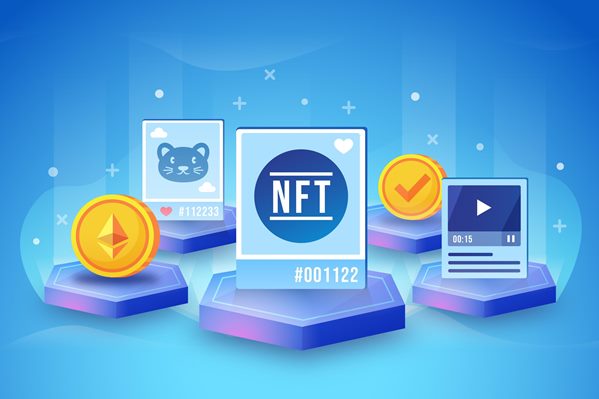
Businesses adopt NFTs—Non-Fungible Tokens—by specifying the NFTs’ use cases, selecting fitting blockchains, minting, and storing them in NFT wallets.
Through this, businesses have added transparency and efficiency into their customers’ buying experience, ultimately transforming the business world. Thanks to adopting NFTs in businesses, customers can now:
- Connect and share their experience with like-minded individuals in a community.
- Enjoy personalised services without compromising their identity.
- Earn Flexible reward points redemption
- Appreciate complete operational transparency.
Customers Can Engage With Like-Minds in a Community
Naturally, an NFT community sustains its value. So, it makes perfect sense that a business adopting NFTs should have a functioning community for its customers, which are, by default, its NFT holders.
Aside from the apparent similarity of holding the business’ NFTs in their NFT wallets, customers with other similar tastes can join heads to share meaningful value.
The community can be online or offline since the NFT utility must represent a real-life benefit.
For example, a brand selling skateboards can offer members special NFTs giving them access to certain skating parks or maybe special or discounted access to some limited edition of grip tapes.
The members could communicate solely in the general social media community or physically meet.
Either option breathes a more positive customer experience and offers the brand valuable insights into critical changes they might need to make.
Customers Enjoy More Personalised Services and Targeted Marketing
NFT-integrated brands’ customers can enjoy more personalised services and targeted marketing to some extent of anonymity.
NFTs are deployed and transacted on the blockchain; you can track them. For example, let’s say an ecommerce brand’s NFT holders can pre-order goods before they hit the shelves.
Suppose you got that NFT with either the brand’s native cryptocurrency or any accepted stable coin (BUSD, USDT, etc.). Now, say you connect your NFT wallet to the brand’s website every month to pre-order four Adidas white tees; your NFT wallet stores your purchase history.
Therefore, anytime you reconnect your wallet to the store’s website, they’d automatically recommend your preferred choices without knowing your identity behind the wallet.
Flexible rewards and NFT redemption for loyal customers
Smart contracts execute NFT transactions; therefore, when a customer purchases a brand’s NFT, they can access the royalties rewards in the smart contract either from subsequent sales of the NFT or other conditions as specified in the smart contract.
Ideally, customers’ loyalty is ensured when the brand rewards them with certain points from repeated purchases of their products.
Conversely, some brands allow loyal customers to redeem their reward points via NFTs. It’s common to see some underhanded brands backtrack on their reward redemption promise even after specifying the redemption percentage.
But when using NFT for rewards point redemption, the smart contract specifies the points-to-money redemption ratio. Therefore, after the condition for earning a reward redemption is satisfied, the brand’s native token is automatically released to your crypto or NFT wallet.
Likewise, customers might choose to redeem their reward points as NFT royalties.
Carbon Emission Vs NFT Without Utilities
Many crypto and NFT critics have raised the alarm over Ethereum NFTs’ negative effect on the climate.
However, Ethereum has, since by mid-September, fully transitioned into a proof of stake network, reducing its energy consumption by 99%.
Unfortunately, the carbon emission solution doesn’t automatically give productive utilities upon lacking NFTs.
You must clearly define your NFT utilities within their smart contract before integrating them with your business. Otherwise, they are only glorified pixels with no sustainable, practical value.




